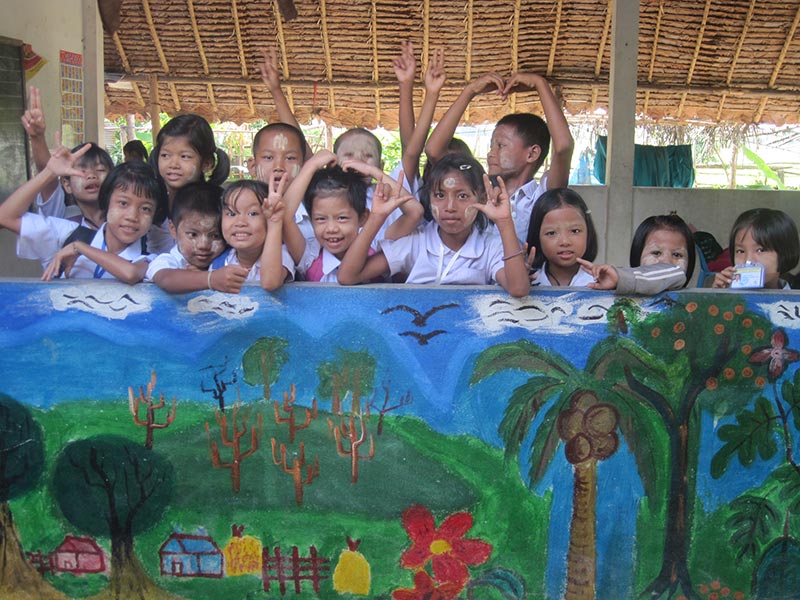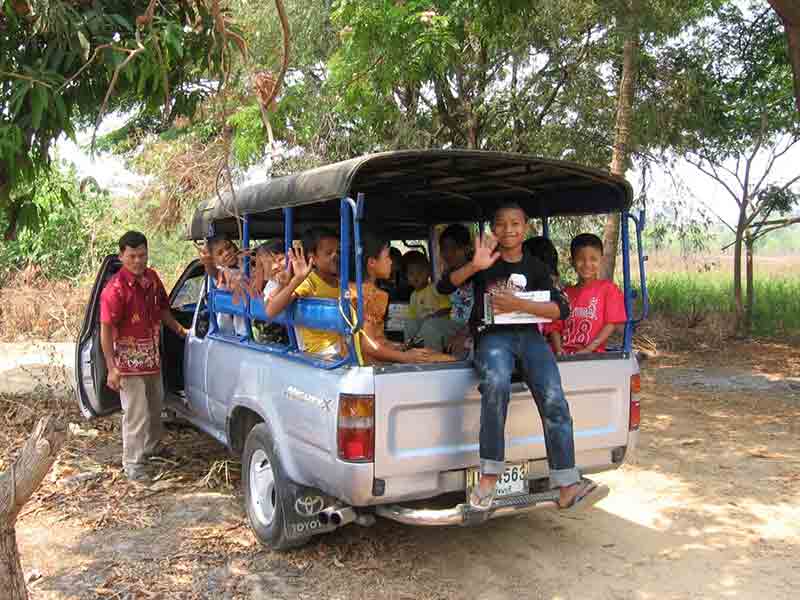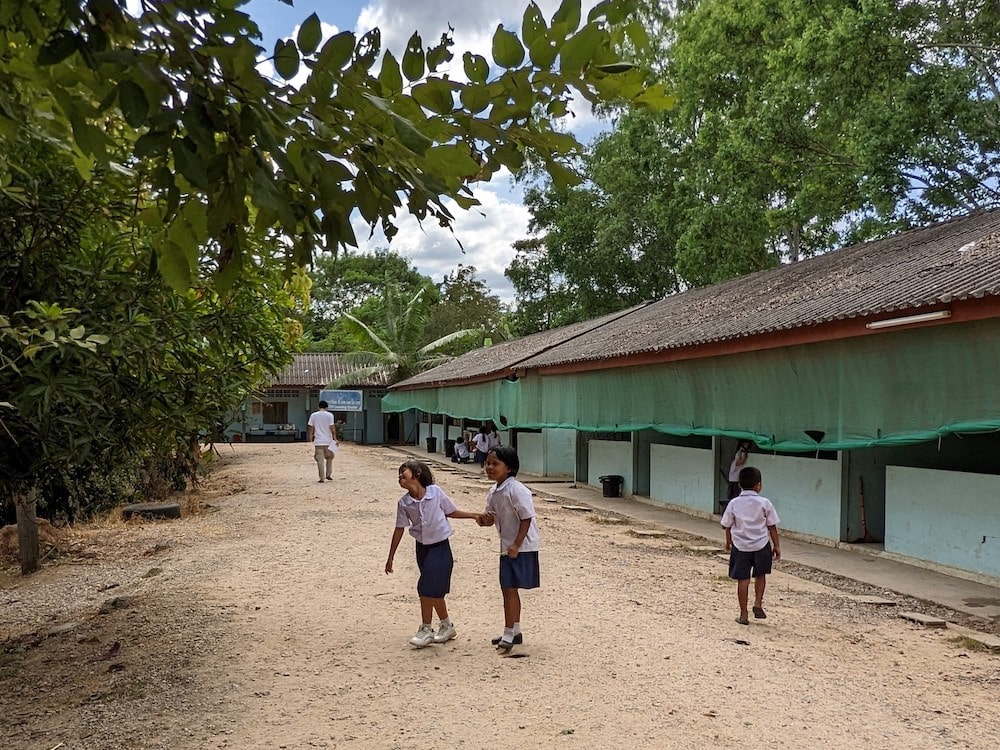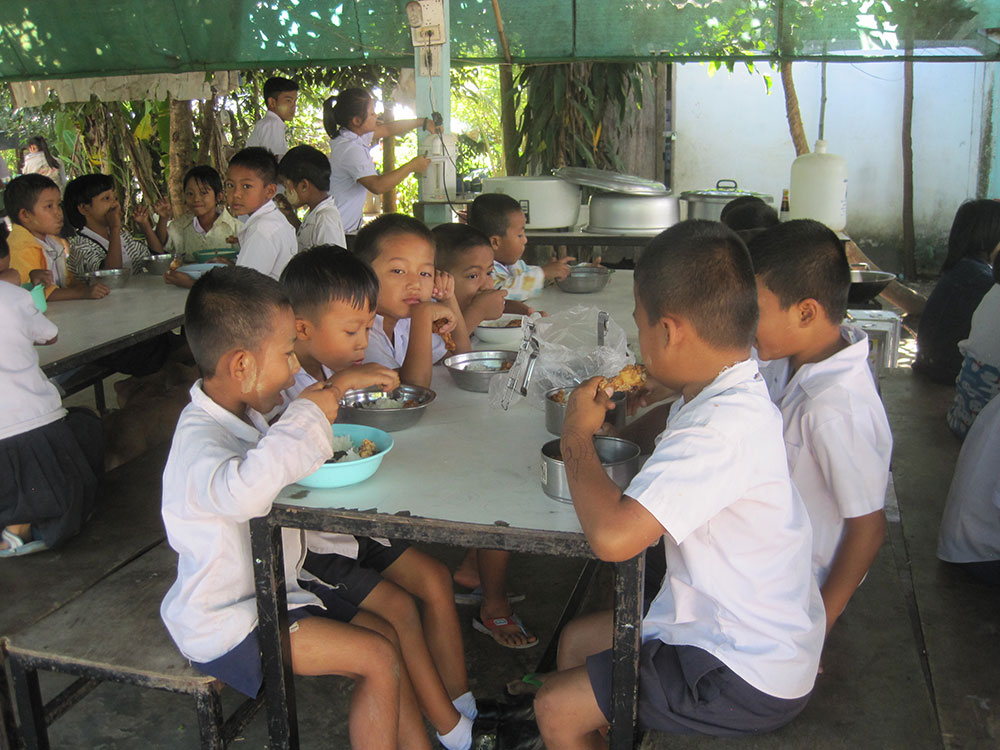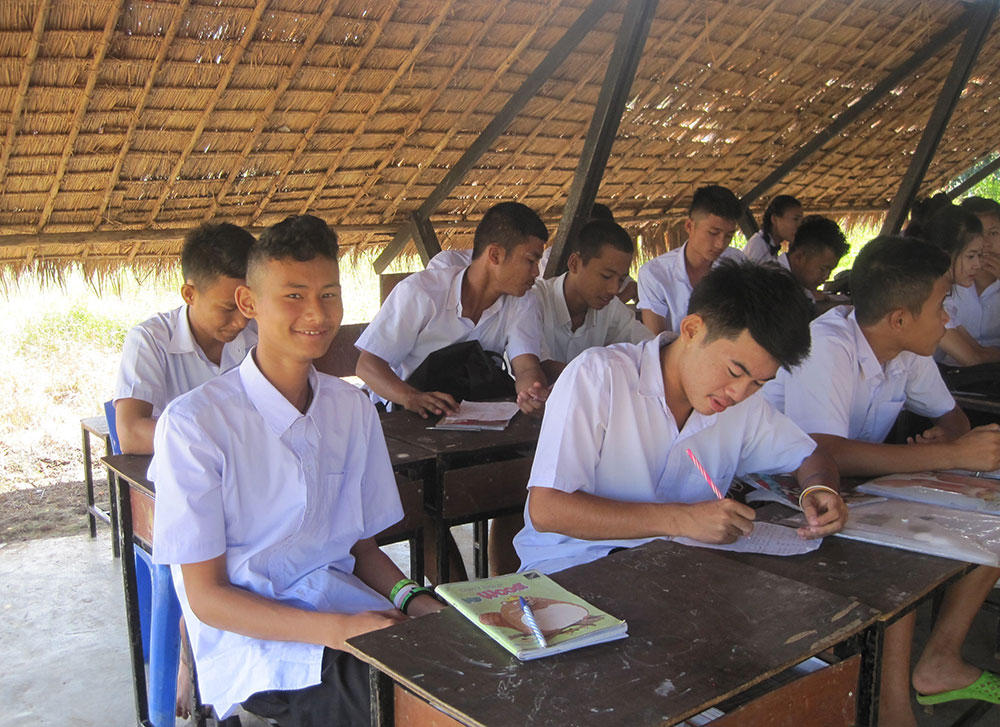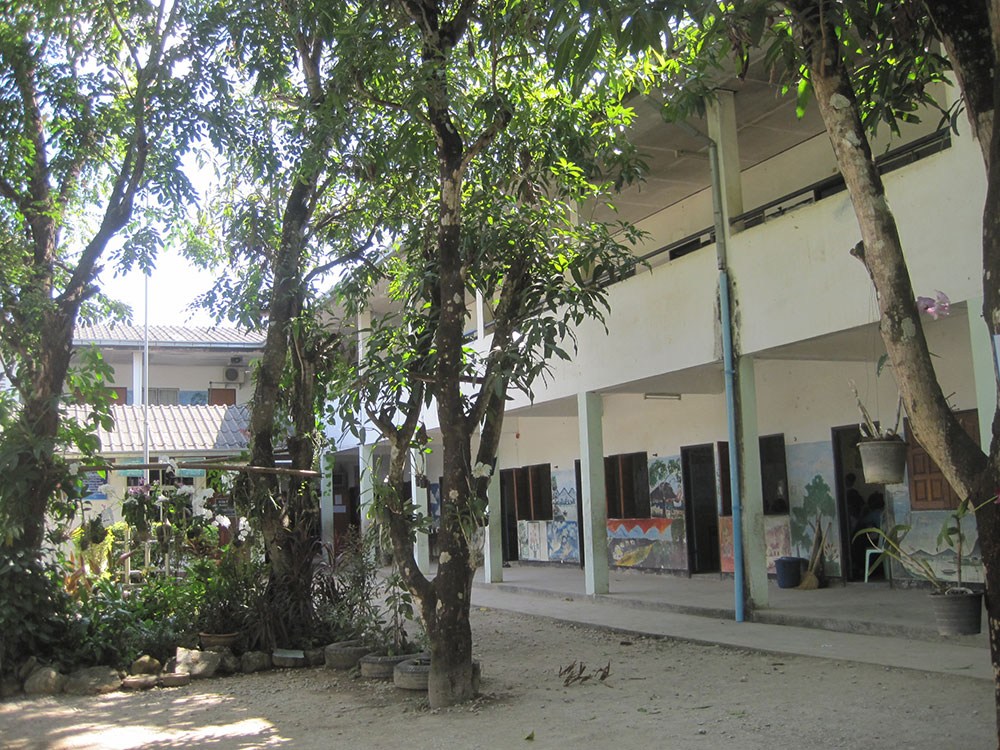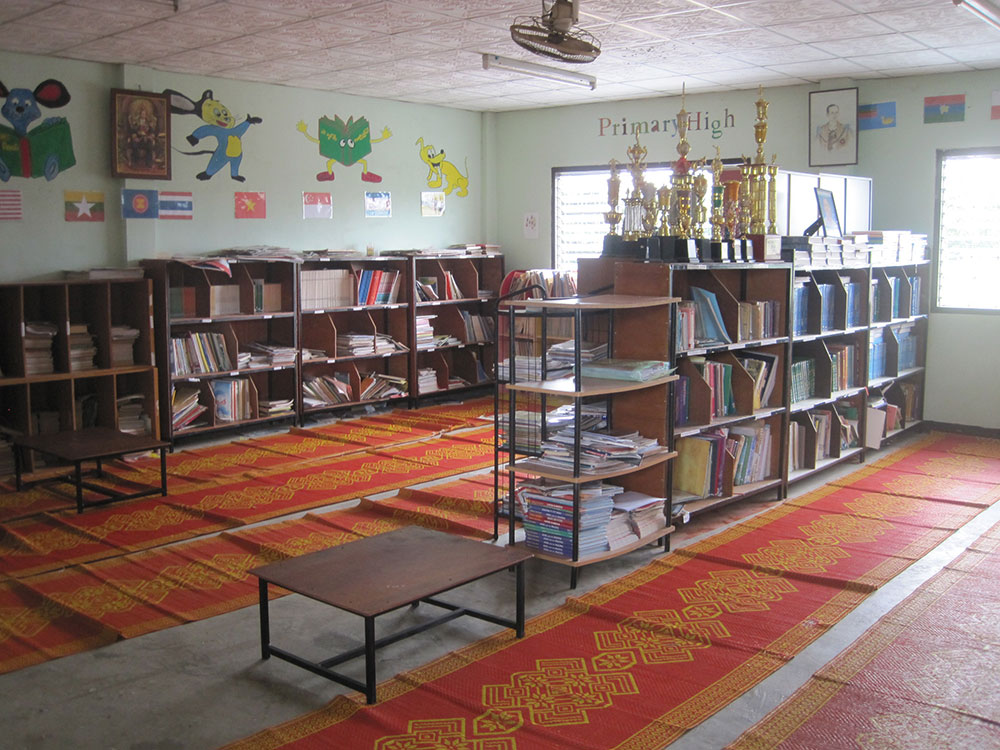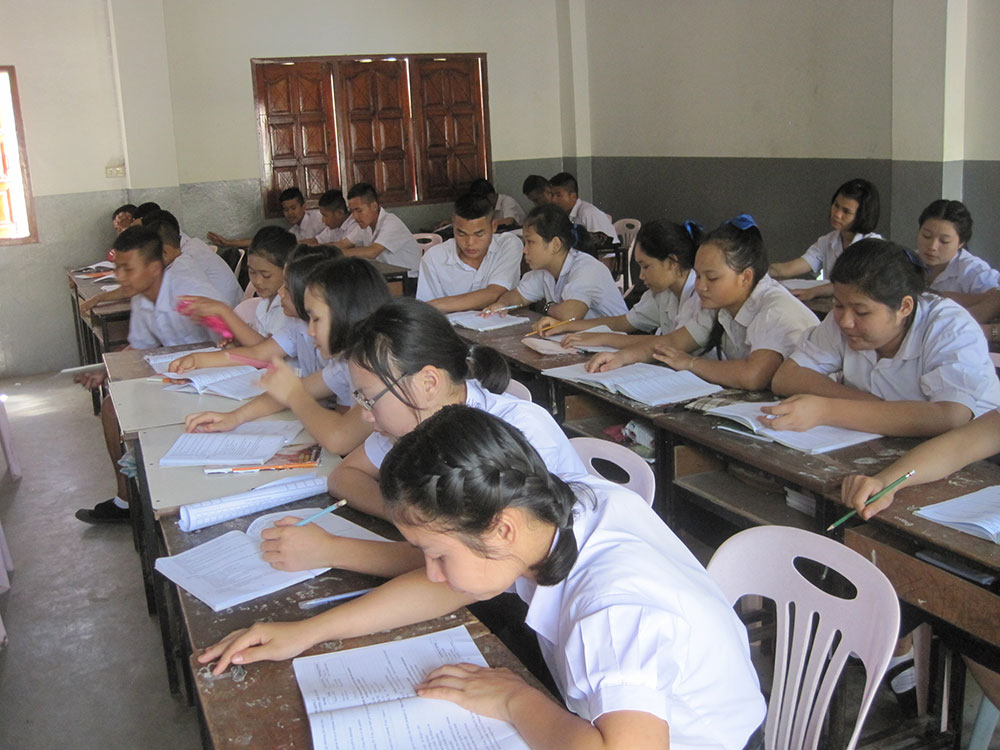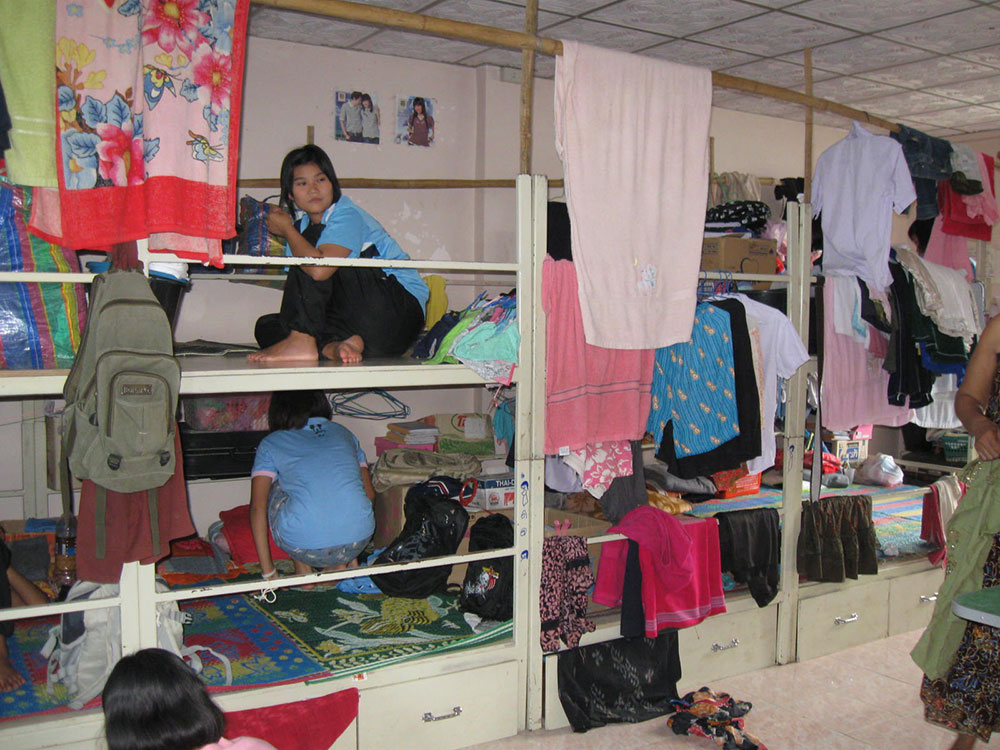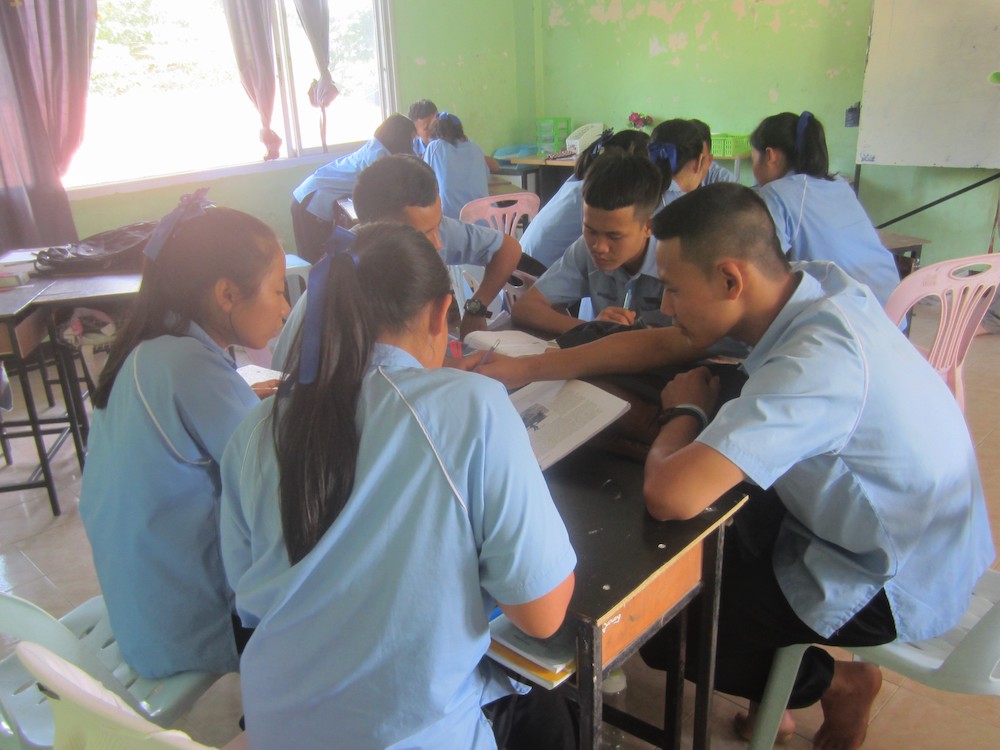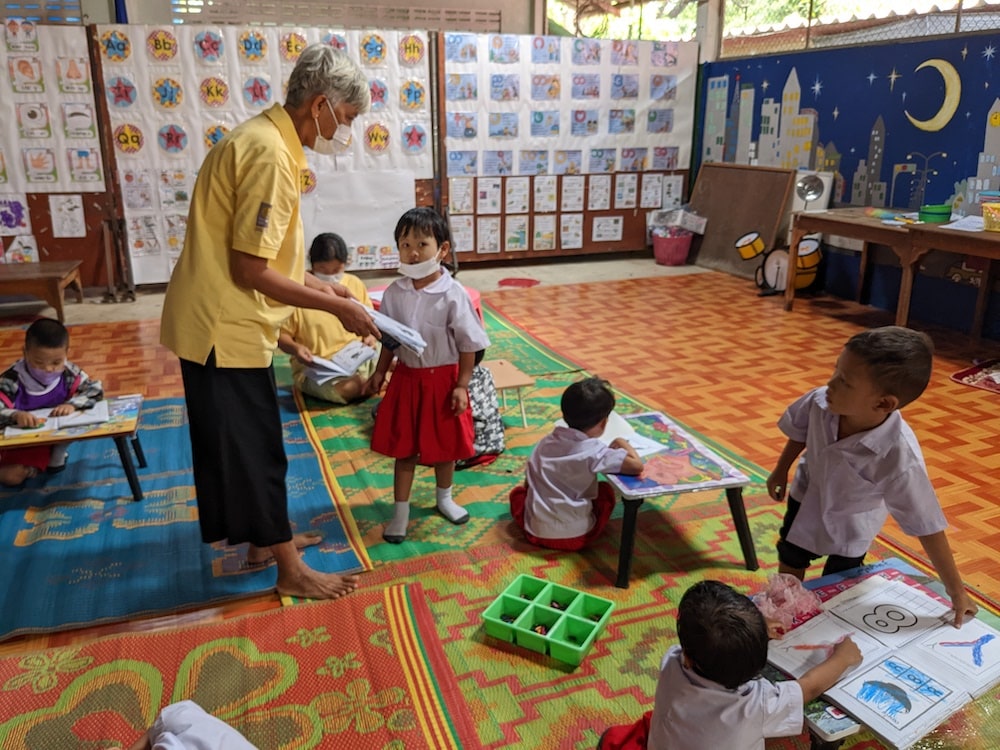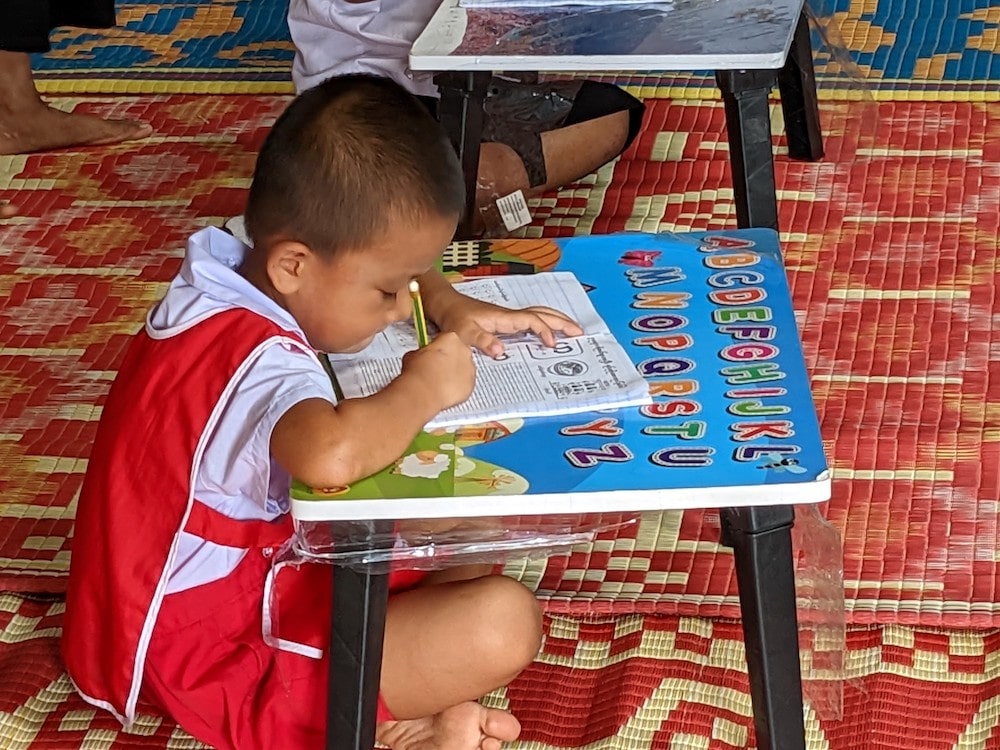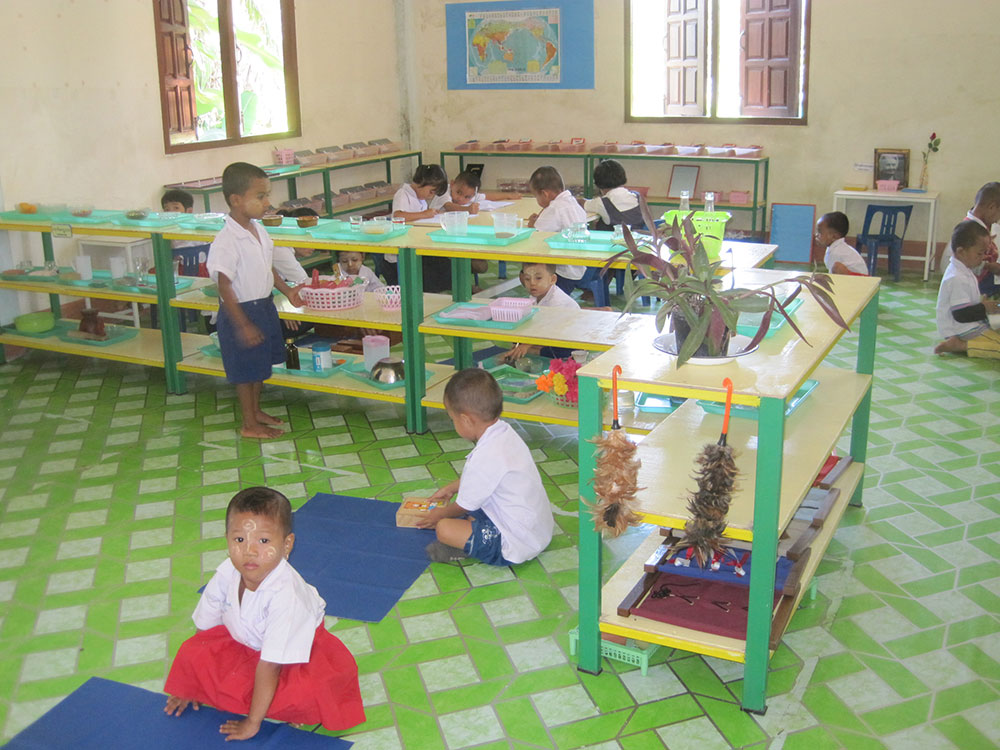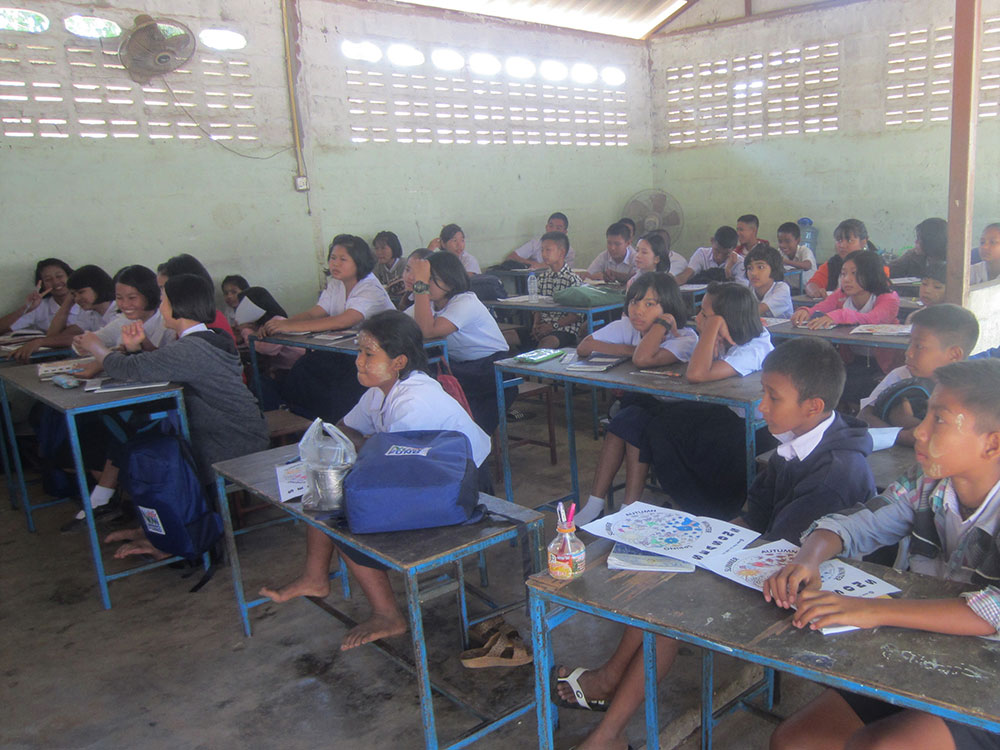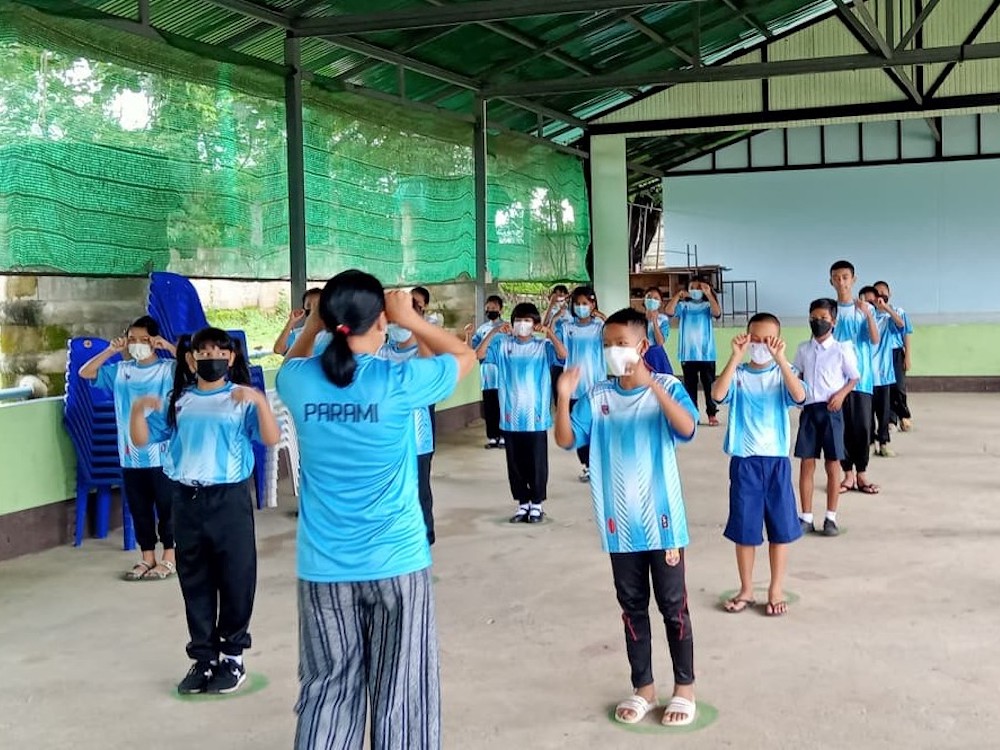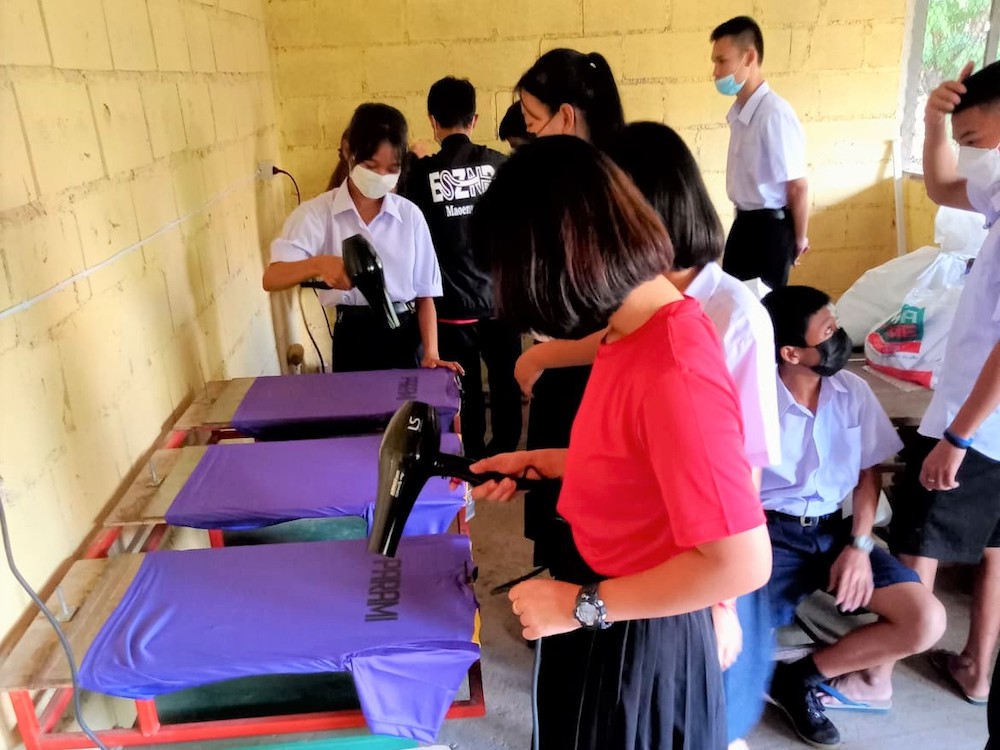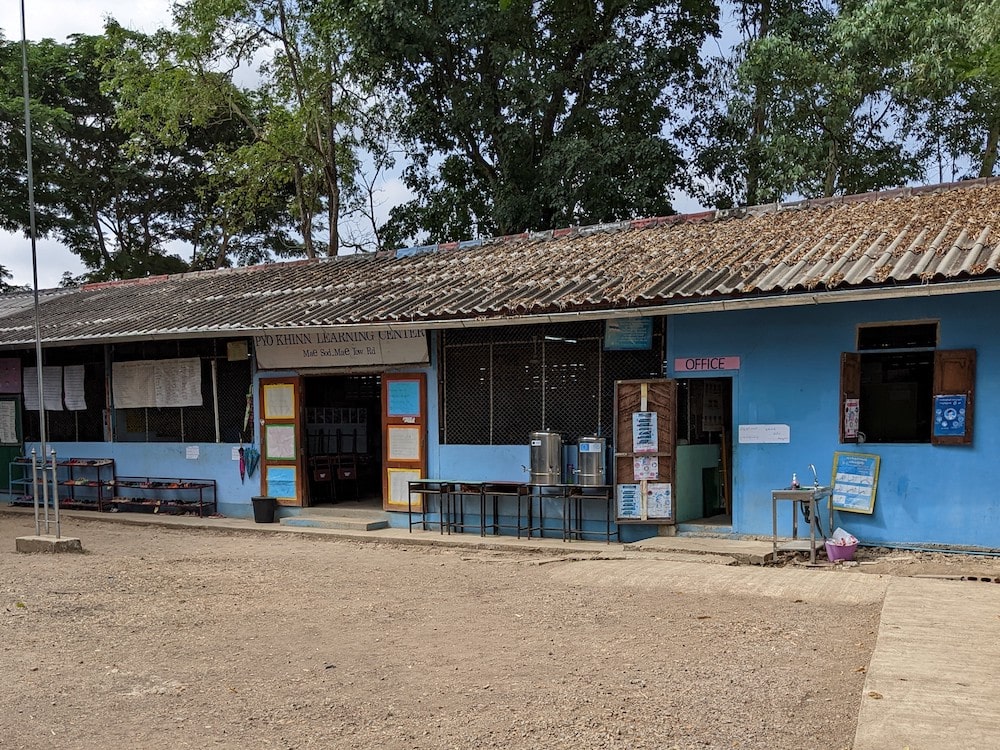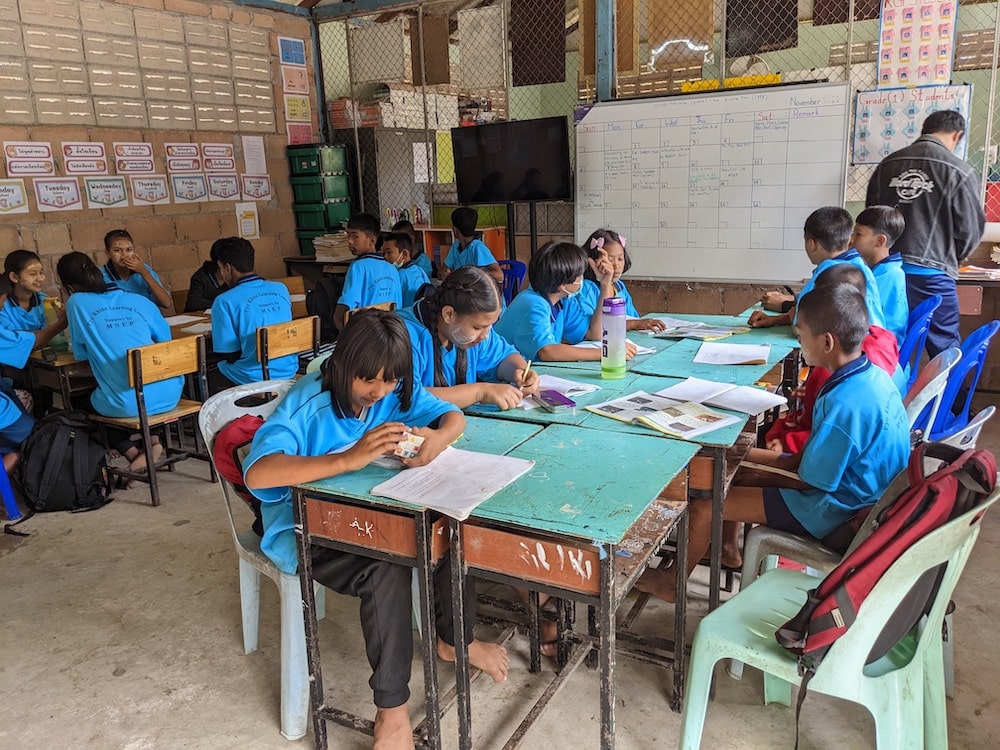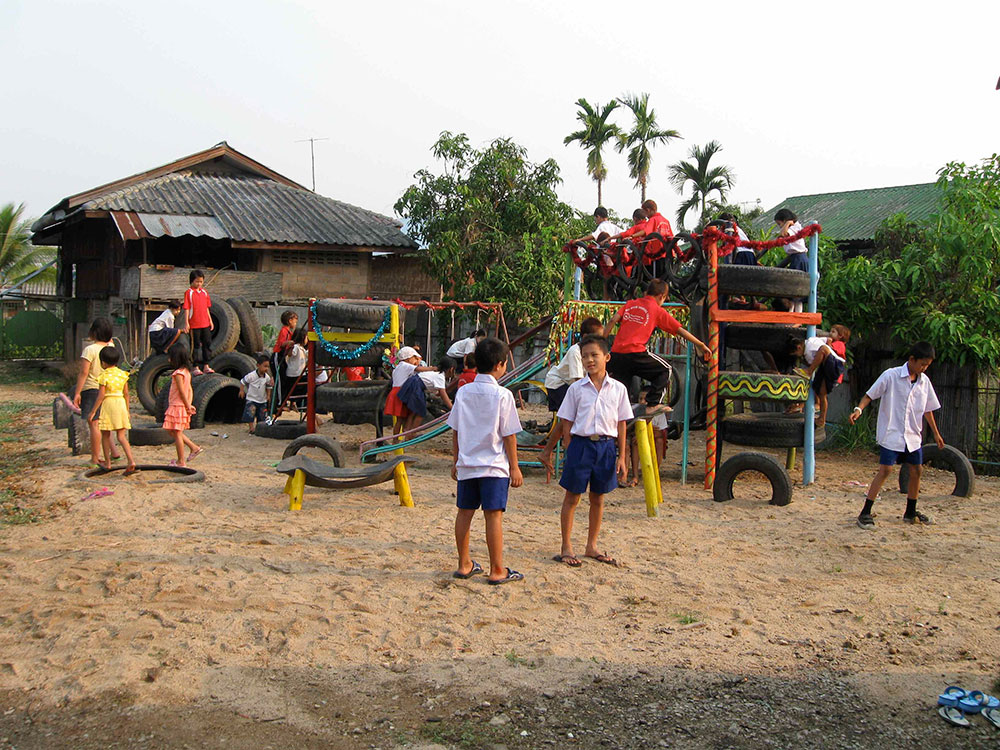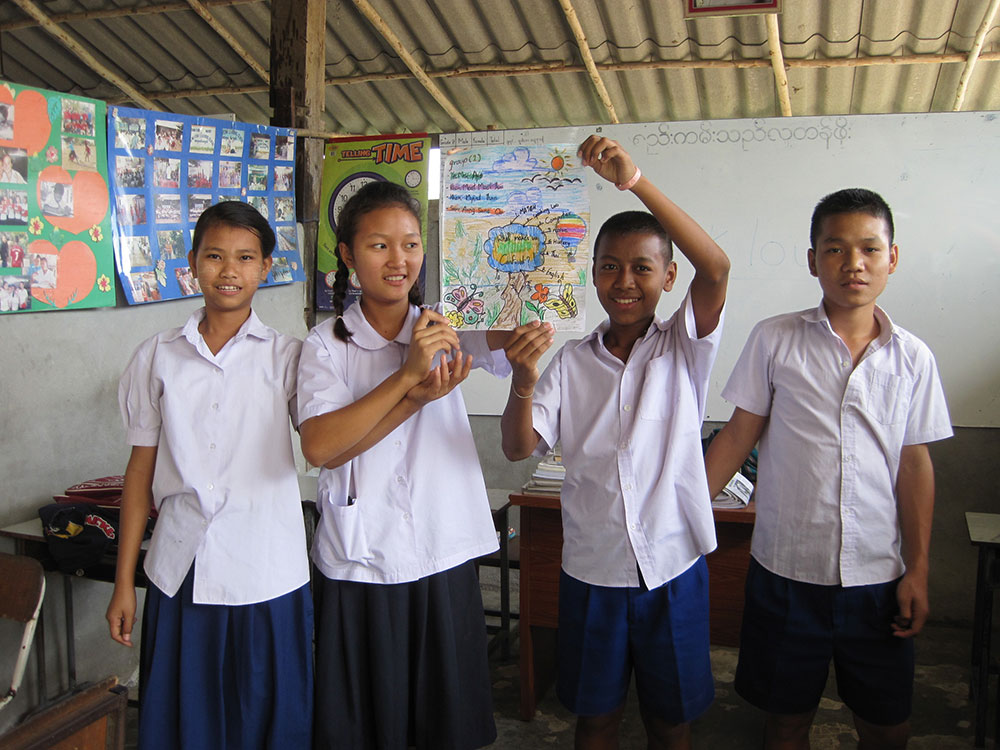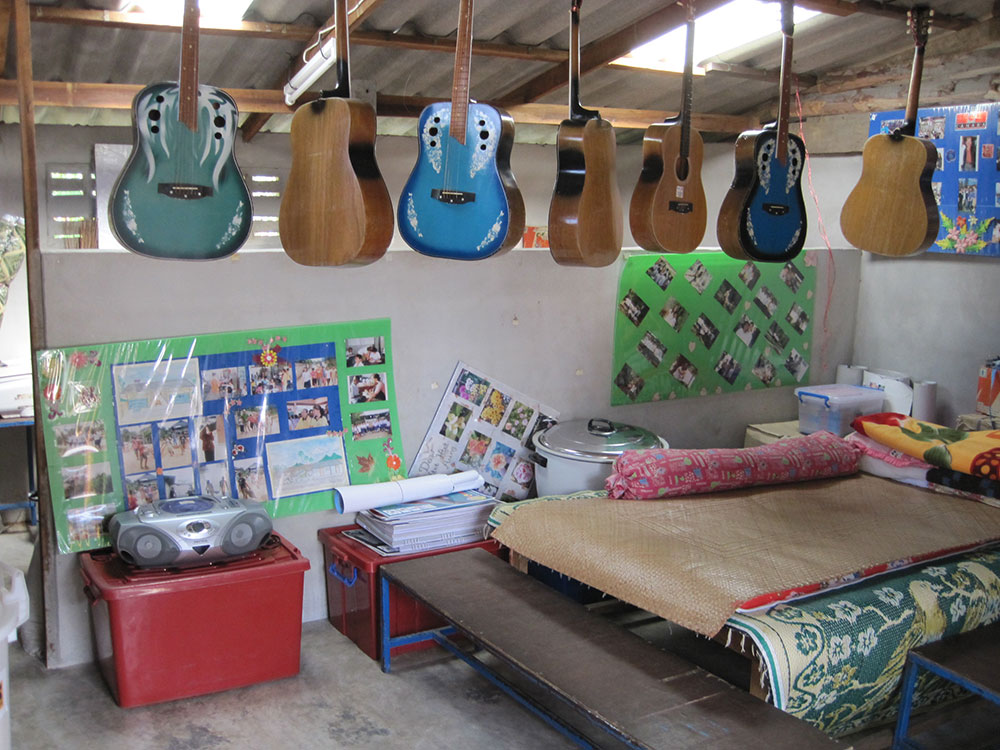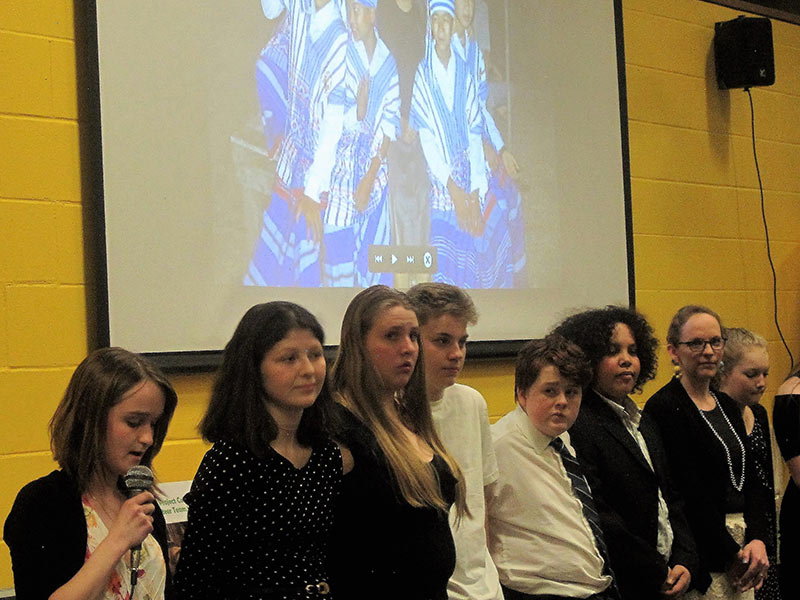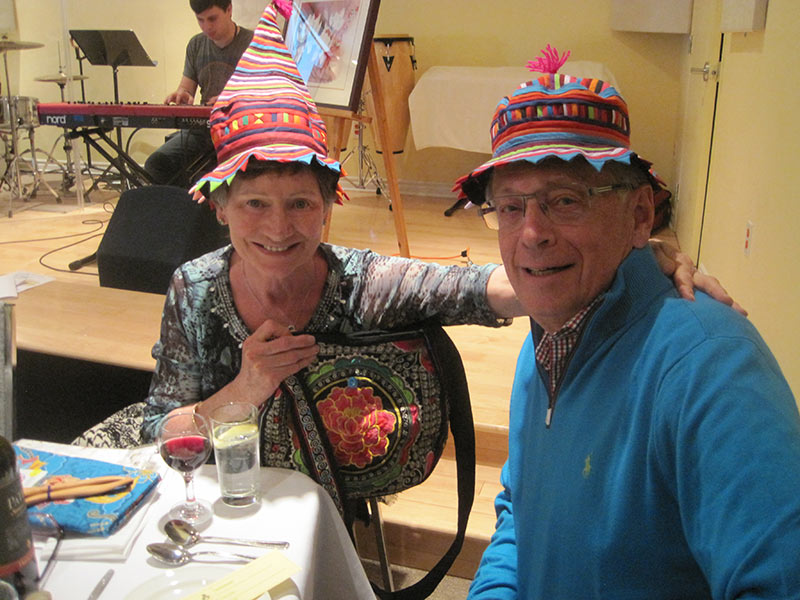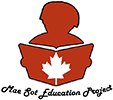
Partners
MSEP is a community-based project in the Eastern Townships of Quebec, Canada that thrives by building relationships, both in the migrant education community in Mae Sot, Thailand and in our own community here in Canada. We are grateful to all with whom we collaborate for their engagement with the broader project of advancing education for migrant and refugee youth. Among them are the migrant learning centres described below, organizations in Mae Sot such as the Burmese Migrant Workers Education Committee, Teacher Focus Myanmar, and Child’s Dream, and, in Canada, Champlain College – Lennoxville and Bishop’s University and the many individual donors and supporters who enable our activities.
Our Role in the Migrant Education Community
How does the assistance in the teaching of English provided by Mae Sot Education Project volunteers fit into the educational objectives of the migrant education community? English has become the global language. For the most precocious youth, it will open doors to higher educational opportunities that are otherwise simply unavailable to them. For others, it may be of lesser value but will lead to job opportunities, if only in Mae Sot or upon return to Myanmar. It is a service we can offer which is highly valued by the Myanmar educational community in creating its own future. However, for our project, English teaching assistance is not the primary objective. Rather, we see it as a vehicle for opening a window on the world for Myanmar children and also for creating bonds between volunteers and children that prove enriching on both sides. In addition, volunteers provide other kinds of pedagogical support in other subject areas as well as engaging in extra-curricular enrichment activities many of which are made possible through shared language. It is the human – both intellectual and emotional – connections forged through this whole constellation of activities that give our project its value to our partners. During COVID-19, the importance of these connections only increased. MSEP undertook a number of long-distance “Zooming in English” mini-courses with a group of older students (who use their phones to communicate) in order to keep us connected. With Covid behind us, we are now reconnecting in person.
The Impact of COVID-19 and the Coup in Myanmar
At the beginning of the COVID-19 pandemic, the Thai government closed the border between Myanmar and Thailand. It also required migrant learning centres to close to students temporarily. Migrant educators did not want the children in their community to spend a year out of school. Thus they worked overtime to create a program of home-based Learning (HBL) activities and to prepare teachers to travel to villages and other settings where migrants live to deliver lessons. A number of NGOs (including MSEP), as well as UNICEF, provided financial support both for HBL and for sanitation equipment needed for the time when schools would be allowed to open. Then, in 2021, the Myanmar military staged a coup and initiated what has become a civil conflict in the county. Forced displacement and the flow of refugees, including refugee children, to Thailand grew. This combination of the pandemic and the coup have increased the instability, separation from family and insecurity with which people in the migrant community have to live.
For a complete report on the impact of Covid and the coup on migrant education, see Teacher Focus Myanmar’s 2022 report: Stepping Stones – The Impact of Twin Crises on the Future of Migrant Education in Thailand at https://www.teacherfocusmyanmar.org/advocacy-resources
Migrant Learning Centre Partners
All of our partner schools in Mae Sot serve the needs of children of migrant workers and people driven across the border by repression, conflict and economic hardship in Myanmar. All open their doors to children of all religions and ethnicities. Funding for the schools has come from a variety of sources. Because of COVID-19, one of our original partners has had to close her school, Hsa Mu Htaw. During the last several years, many donors have turned their attention elsewhere, and in the face of the pandemic, new problems have arisen. Migrant learning centres face constant difficulties finding sufficient funds to carry on with their work.
The Boarding High School for Orphans and Helpless Youth (BHSOH)
BHSOH is located in the countryside outside Mae Pa, near Mae Sot. It was founded in 1993 by U Khaing Oo Maung, an educator and democracy activist of the 1962 generation. Along with providing primary and secondary education, BHSOH boards and cares for orphans and neglected children. One of its challenges is to find educational options for students who have finished its G1-to-G10 program. To meet their needs, it prepares a small group of students for GED programs, offers a Kor Sor Nor (Thai Nonformal Education) program to help students who wish to transition into the Thai education system and is also the home of the Youth Connect Life Skills program. During the pandemic, it is one of the schools that managed to do some online teaching. In addition, a volunteer in our community has done a weekly Zoom class in English enrichment for a group of older students. The school’s work is overseen by a School Management Committee, and its core funding comes from Child’s Dream and a Canadian donor (through MSEP). Prior to COVID closures, BHSOH serves approximately 300 children about 35 of whom lived at the school. Along with Minmahaw Learning Centre, it is part of the Education for Friendship Foundation (https://educationforfriendship.org/).
Hsa Thoo Ley Learning Centre and Orphanage
Hsa Thoo Ley Learning Centre and Orphanage is situated on the outskirts of Mae Sot. It was founded in 1999 by Karen leader Naw Paw Ray as a school for children of migrant workers under the umbrella of BMWEC (Burmese Migrant Workers Education Committee). The largest of the migrant learning centres in Mae Sot, it is divided into three “schools” (pre-school, primary and secondary) and has more than 800 students (240 in the secondary program), including more than 100 boarding students, and a teaching staff of 42. It has a large campus with a number of buildings built with funding from international NGOs including a boarding house, nursery and housing for some of the faculty in addition to classrooms, office space, a library and an auditorium. In the years before the coup, it worked closely with the Myanmar Department of Education as well as the Thai government and developed a program to prepare older students to take matriculation examinations in Myanmar. That program is presently on hold because of the conflict in Myanmar and the closed border. Teacher recruitment and funding for operating costs and salaries are huge challenges for such a large school. It relies on international donors and increasingly on parents for basic funds. MSEP contributes a small amount.
Hle Bee Learning Centre
Hle Bee Learning Centre, situated in the heart of Mae Sot, was started in 1999 by headmistress Naw Tha Zin Htay Naing, a Mon woman who taught for many years in Myanmar. Over the years the school has had to adapt and rebuild, as some of the land it occupied was reclaimed by a Thai owner, and school buildings were destroyed in the process. Sadly, there is no longer any outdoor playground area for children. Before Covid and the coup, it served more than 200 students in primary grades (nursery to grade 6) and employed 13 teachers. Most school funding has come from an Italian donor and MSEP. In the midst of the current turmoil, headmistress Naw Tha Zin made the decision to limit activities and transform the school into a preschool program. Thus while this school was one of our very first partners, we will not likely be sending a volunteer to it in the future. We regret the ending of this partnership.
Parami Learning Centre
Parami Learning Centre began in a small house but moved in 2010 to a large piece of land – realizing the dream of the school organizers to make the school more self-sustaining through development of gardening and fish pond projects and to build a vocational education program for students who have outgrown its K to G10 program. It houses a Kor Sor Nor (Thai Nonformal Education or NFE) program. There are about 489 students ranging in age from 4 to 15 years of age and 27 teachers. Parami also has a Montessori preschool program and before the coup, started a Myanmar-based Nonformal Education (NFE) program for students hoping to reintegrate into the Myanmar education system. Post-Covid, its capacity has shrunk somewhat. There are now approximately 300 children attending Parami. The school’s biggest challenge has been a steady increase in its land rent and clear no source of funding sufficient to solve that problem. Help Without Frontiers (HWF) provides partial funding for operational costs (including transportation and salaries for teachers). MSEP and a number of other organizations also help.
Pyo Khinn Learning Centre
Pyo Khinn Learning Centre, our newest school partner, was started in 1999 by Muslim headmaster U Thein Tun. Originally, it was housed in a small building in a very poor Muslim corner of Mae Sot. In the midst of Covid, it was forced to move. A small but very energetic staff and new headmistress found a new location and set to work building a new school building with assistance from the organization Child’s Dream. It is now fully functional and is again serving about 110 children with its 7 teachers. Pyo Khinn uses a Myanmar curriculum but also introduced a Kor Sor Nor (Thai Nonformal Education) program shortly before the Covid. Although Muslim in character, the school teaches about all the different religions of Myanmar. Given the situation for Muslims in Myanmar, added to the militarization, there is little prospect of these children returning there. The school’s main concern is to keep children coming to school at present. The drop-out rate has been fairly high because of the poverty these families face. Pyo Khinn’s core funding comes from Child’s Dream. MSEP also donates to help cover smaller expenses (like school lunch!).
Hsa Mu Htaw Learning Centre
One of our first friends in Mae Sot was the educator, Daw Htet Htet Aung. Some years ago, she took responsibility for helping a very poor primary school that needed her organizational skills. Under her leadership, the school blossomed. It served more than 200 children ranging in age from 3 to 13 years and had 9 teachers. Along with a primary school program (nursery through grade 6), based largely on the Myanmar curriculum, it had a Montessori preschool program and a dormitory for boarding students. A mushroom growing project, initiated by another Canadian NGO, provided a small income that Daw Htet Htet Aung allowed the children to administer. In addition, the children undertook handicraft projects to try to raise funds for their school. Funding was always precarious. A number of organizations including MSEP, Safe Child Thailand and TDH Netherlands as well as individual donors helped. Covid and then the coup left Daw Htet Htet Aung trapped in Myanmar, and a critical donor organization decided that it could not continue to pay the rent. The school closed temporarily. With help from the Burmese Migrant Workers Education Committee, it has now reopened to about 100 children including 25 boarding children, and its small staff is carrying on. Recently, it restarted the mushroom income-generation project while awaiting the headmistress’s return. Hopefully a new chapter in its history is beginning.
Link to Pdf version:
The Mae Sot Education Project’s School Partners in the post-COVID Era (PDF)
A Note on Migrant Education
There are currently 62 migrant schools or “learning centres” with about 700 teachers in Tak province where Mae Sot is located. They serve about 14,000 children (out of the 25-40,000 migrant children in Tak). Some offer primary grades only while others offer either secondary only or the entire ten grades, depending on their capacity. A few “LCs” offer “post-10” vocational or GED (General Education Diploma) programs for older youth. The schools vary considerably in size and in available resources, depending on funding from foreign donors, networking within the educational community, etc.
In recent years, Burmese educators have tried to standardize curriculum so that children moving from one school to another have similar experiences. This standardization relies heavily on the use of the Myanmar curriculum. At the same time, they have adapted their curriculum to meet the Thai Ministry of Education requirement that they offer Thai language. Thus migrant children often study three and sometimes four (Burmese, Karen, Thai and English) languages. Finally, conscious of the inadequacy of traditional Burmese education to meet the needs of people living in a 21st-century democratic society, some schools have tried to integrate critical thinking pedagogy into their teaching, leading to development of curricula for new subject areas such as environment studies, social studies, and Burmese culture, history and politics in addition to traditional disciplines such as language, math, art, and natural sciences, Teaching in all subject areas depends on the availability of trained teachers and materials, both of which are always in short supply. Schools rely heavily on volunteer teachers to fill gaps in the curriculum. Until its departure from Mae Sot in 2017, World Education was instrumental in developing curriculum and in providing teacher training. With its departure, learning centres have felt the loss of an important source of pedagogical support. Between 2012 and the 2021 coup, when eventual return to Myanmar for at least some students seemed possible, there was some collaboration with the Myanmar Ministry of Education; the migrant education community worked to strengthen older students’ ability to succeed in the Myanmar system and offered Myanmar matriculation exams. However, the coup put these initiatives on hold. At the same time, for those who see their future in Thailand, efforts are being made to provide children with the language and general knowledge needed to gain access to the Thai educational system. Funding is needed to facilitate both these efforts.
Our Partners in Canada – Our Community
MSEP is a community-based project. Our Canadian supporters and partners enable our project. Our institutional university and Cegep partners have assisted us by allowing use of their foundations to give receipts for charitable donations. They also provide printing and web services. We at MSEP extend a special thanks to Julie Fradette, and to Bishop’s University for supporting the development of this website.
Members of our community along with local businesses, organizations and churches have facilitated fundraising and outreach in many ways. Their contributions, large and small, are invaluable. Over the years, MSEP has received support from a number of foundations. However, our core support remains local. Members of the Oasis Christian Centre in Lennoxville have donated their beautiful space for our Thai-Burmese dinner each year. A team of local epicures has prepared many of the dishes. Burmese chef, Tala Rod and his mother Mi Sorn have provided our Burmese dishes. Friends in the community have donated their dining room tables for fundraisers. The University Singers at Bishop’s University have sung for us. Local artists have contributed their paintings and pottery (and galleries even!) for our art auctions. Steadfast supporters in the business and art community have contributed prizes regularly for our annual raffle. St. Mark’s Chapel at Bishop’s University and the Champlain College teachers’ union (SECCL) have made annual contributions, and other organizations and churches have made smaller donations. Students at local schools have held their own fundraising events and been part of our education and outreach projects. Individual supporters have made donations, attended our events enthusiastically and helped us spread the word about the importance of education for migrant and refugee children. We could not do this project without this support.
